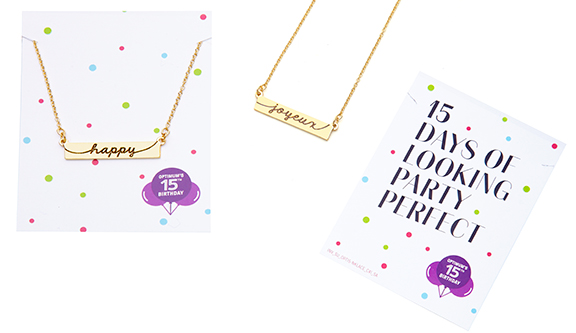Recognition Pays Off
As you make future plans, consider recognition and reward programs. They are valued by employees and they financially benefit the companies who use them!
Recognizing your employees leads to greater employee engagement – and greater engagement leads to greater profitability. A Towers Perrin study of 50 global companies over a one year period showed:
- Companies with high employee engagement had a 19% increase in operating income and almost a 28% growth in earnings per share.
- Companies with low levels of engagement saw operating income drop more than 32% and earning per share decline over 11%.

What kinds of programs are we talking about? One corporate “staple” is the Years of Service Award Program. In a study by the Cicero Group:
- Companies that have implemented an effective years of service award program have almost 20% more employees that feel strongly that their company cares about them.
- Employees who feel positively about their company stay 4 years longer at their companies than employees who are not similarly engaged.
- The impact of milestone programs reached across generations and impacted older and younger employees alike.

Another type of recognition program is the Sales or Performance Incentive Program. Research by the International Society for Performance Improvement and the Incentive Research Foundation found:
- Properly selected, implemented and monitored incentive programs improve performance by an average of 22%. Team incentives can increase performance by as much as 44%.
- When programs are first offered, a 15% increase in performance occurs. When asked to persist toward a goal, people increase performance by 27% when motivated by incentive programs.
- Longer-term programs outperform short-term programs. Incentive programs that run for a year or more produce an average of 44% performance increase.
Now that you are thinking about recognition programs, what might the physical award look like? A report by the SITE Foundation found:
- Tangible non-monetary incentives (not cash or cash equivalents like gift cards) were actually valued much higher by award recipients. Apparently cash or cash-equivalents mentally go into the employee’s base salary bucket. In addition, awards with unknown true value tend to be ascribed a higher value than cash.
Non-cash incentives are more socially acceptable to acknowledge. Just like you wouldn’t want to talk about your base salary with others, award recipients are uncomfortable bragging about cash awards.

Recognition award trends come and go, but custom jewelry remains the most consistent, traditional and highly regarded award. There are several reasons why.
- Jewelry, particularly precious metal jewelry, has an inherent value. Gold and silver keep their value over time.
- Custom jewelry that incorporates a company’s name or logo is a constant reminder that the company values the employee. This feeling is reinforced every time the jewelry is worn.
Custom award jewelry is a discreet yet visible symbol of achievement that co-workers and customers can see. Jewelry is meant to be worn every day, so when an award recipient wears their sales ring, or President’s Club pin, into the office it will attract attention. Co-workers will be inspired to earn their own award and customers will see that they are working with a true professional.

If you need another reason to consider recognition, consider reading our Tax Benefits of Recognition post. Let’s recognize those that deserve a little incentive.

